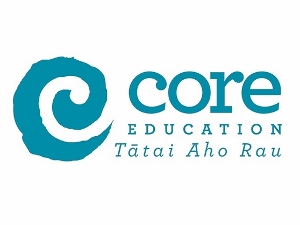

<p><img class=" alignright size-full wp-image-1331" src="http://schoolnewsnz.fastrackdev.com/wp-content/uploads/2015/03/core_loge_300x225.jpg" alt="core loge 300x225" style="margin: 5px; float: right;" width="300" height="225" />CORE Education is supporting and leading the design of the New Zealand portion of a global collaboration called New Pedagogies for Deep Learning. A three-year initiative, it aims to enhance learning within schools, by mobilising partnerships, innovation and technology.</p>
<p> <!--more--> </p>
<p>Seven Christchurch schools in the south-west area have formed as one of the Ministry of Education&#8217;s clusters, and are participating alongside schools as part of a wider, global collaboration of 11 countries, including Australia. Each school contributes $1500 towards the initiative, which covers costs relating to the support received globally. CORE supplements the other $1500, and provides facilitation throughout the duration of the initiative.</p>
<p>Yesterday marked the official launch in New Zealand, and to celebrate, Michael Fullan – a worldwide authority on educational reform – who is in New Zealand predominantly to work with the cluster of schools and share programme details, attended the event.</p>
<p>He worked with teachers from the cluster in the morning. In the afternoon, he spoke exclusively in front of Christchurch&#8217;s secondary and primary school principals&#8217; on the topic &#8216;Building a collaborative culture&#8217;.</p>
<p>Derek Wenmoth, director and the New Zealand initiative&#8217;s lead facilitator, says: &#8220;The belief is that providing structured and planned education systems help to build and support creative, happy and healthy individuals who will contribute later in life to the common good. This initiative is the first of its kind in New Zealand and having seven Christchurch schools embark into collaborative deep learning is exciting for the future of all New Zealand schools.&#8221;</p>
<p>At the end of the three years, each school aims to have put in place technologies that support and accelerate learning, including having methods and tools to gather and analyse data for continuous improvement, and a fully engaged student, teacher, parents and whole-community population.</p>
<p>The seven schools in this Christchurch cluster are, Christchurch South Intermediate School, Somerfield Primary School, Cashmere Primary School, Thorrington Primary School, West Spreydon Primary School, Sacred Heart (Addington) Primary School, and Addington Primary School.</p>

EXCLUSIVE: Teachers used to be paid two to three times more than minimum wage workers,…
After an “overwhelming” vote to reject the latest Government offer, secondary school teachers will begin…
Second-language learning should be compulsory, says a new report from a forum bringing together academics,…
A new entitlement aimed to improve access to learning support coordinators for schools with students…
Educators have raised questions about the Ministry of Education’s new secondary school subjects, set to…
Professional learning and development (PLD) for teachers needs to be higher impact for teachers and…
This website uses cookies.